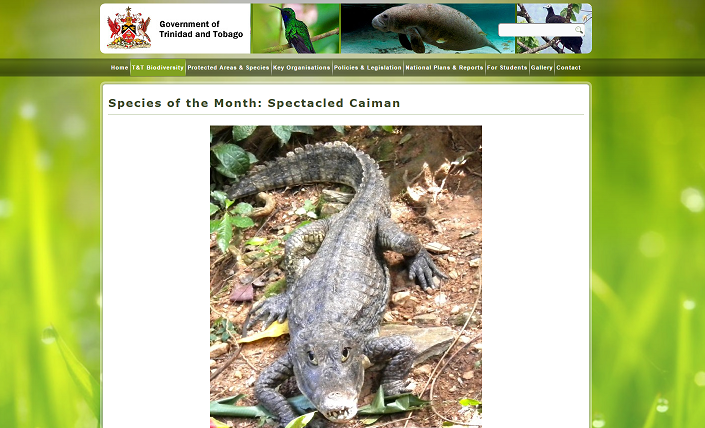On November 24th 2015, the Ministry of Planning
and Development in collaboration with the
Food and Agriculture Organization of the United Nations (FAO/UN) hosted
an Inception Workshop for the Global Environmental Facility Project entitled "Improving Forest and and Protected Area Management in Trinidad and
Tobago" at the Petrotrin Point-a-Pierre staff Club.
 |
| Dr. David Persaud, Environmental Manager, Environmental Policy and Planning Division delivering remarks on behalf of the Minister of Planning and Development. |
The Food and Agriculture Organization of the United Nations
(FAO/UN), is implementing a USD 30 million, four-year project on behalf of the
Government of the Republic of Trinidad and Tobago to conserve globally
important biodiversity and ecosystems in Trinidad and Tobago. This project
supports the Government’s policy reforms
for biodiversity conservation for sustainable management of forestry and
protected areas.
The project will establish six pilot protected areas (PA) to
model participatory approaches to sustainable natural resource management.
Therefore, a key strategy in this project, is guiding the implementation of the
project through the constitution and support of Pilot Protected Area
Subcommittees comprising of key stakeholders for each of the pilot sites. To
date over 30 different governmental institutions and civil society
organizations have accepted to serve on these Sub-committees. Over the last
four months, these Subcommittees have drafted work plans for their respective
pilot sites.
The Inception Workshop served as an opportunity for representatives of the Pilot Protect Area
Subcommittees to present on the draft work plans for each pilot protected areas and to solicit feedback and validation from stakeholders present on the proposed actions and mechanisms to achieving the project's objectives.
 |
| Participants present at the Inception Workshop for the Improving Forest and Protected Area Management in Trinidad and Tobago Project, November 24, 2015. |


